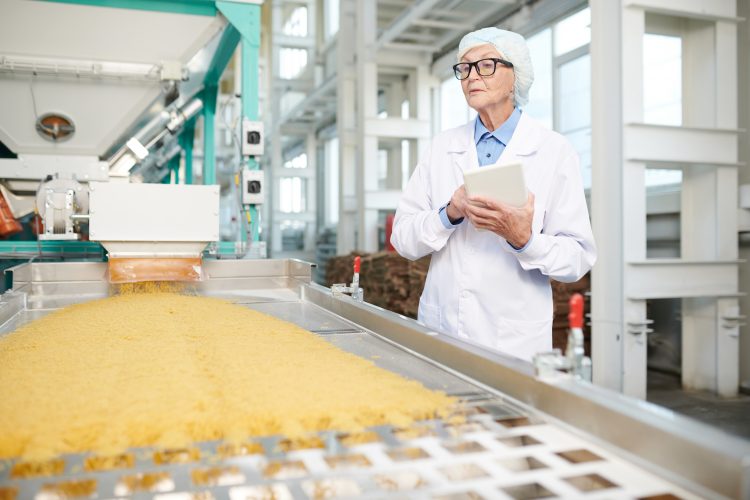The next big HITS
- Like
- Digg
- Del
- Tumblr
- VKontakte
- Buffer
- Love This
- Odnoklassniki
- Meneame
- Blogger
- Amazon
- Yahoo Mail
- Gmail
- AOL
- Newsvine
- HackerNews
- Evernote
- MySpace
- Mail.ru
- Viadeo
- Line
- Comments
- Yummly
- SMS
- Viber
- Telegram
- Subscribe
- Skype
- Facebook Messenger
- Kakao
- LiveJournal
- Yammer
- Edgar
- Fintel
- Mix
- Instapaper
- Copy Link
Posted: 18 June 2020 | Moawiya A. Haddad, Salvatore Parisi | No comments yet
Exploring new frontiers in the world of food and beverages: The hygiene, integrity, traceability and sharing (HITS) strategy.


The role of the food producer is to deliver on the explicit or tacit desires of the consumer. A food or beverage product can be evaluated by means of a three‑step process: selection, purchase and final usage. In this ambit, the proposed food is perceived by consumers with relation to positive and negative features and predictable consequences of the purchase.
With regard to positive features, the edible product is evaluated in terms of sensorial and hedonic features, ie, food-related parameters – aroma, flavour, texture, taste, etc – and non-implicit factors (claims) such as ethical trade, integrity of the food producer and defence of cultural traditions. Negative features, on the other hand, can dissuade the consumer: unpleasant sensorial attributes, hygiene and safety concerns, remarkable environmental risks, lack of integrity (as opposed to authenticity), etc.
As a result, the consumer reacts proactively in terms of food and beverages, evaluating positive and negative features and anticipating possible consequences. Food business operators (FBO) demonstrate a variety of attitudes, from ‘reactive’ actions (passively awaiting crises; limitation of dangers; restoring and assessment) to ‘proactive’ approaches (preventive simulation and analysis of crises; detection; limitation; restoring; re-assessment; and continuous learning/improvement).1 Naturally, the proactive strategy is highly recommended and expected by the consumer.
It may be considered that the main challenge for food and beverage producers is addressed on four levels, owing to the four areas of intervention: hygiene, integrity, traceability and sharing (HITS). The HITS acronym suggests that the needs and hopes of the average consumer must be evaluated from four different viewpoints at the same time.
Importantly, the consumer must be protected against menaces. Proactive actions must consider the technological and scientific properties of food production (including the ‘hidden’ and ‘accessory’ packaging materials);2 quality management; compliance with official regulations; and economic factors.3
Consumer demands for integrity must also be considered. Authentic foods and beverages imply that consumers can rely on the FBO, stating that the ethical agreement between seller and purchaser is satisfied. However, authentic foods can be economically expensive and, consequently, production costs may incite partial or total adulteration. In other words, adulterated foods can really ‘remove’ authentic products from the market (in a similar way to Gresham’s Law concerning bad and good money). This concern can be observed in cases of 50-100 percent adulterated extra-virgin olive oils, with the progressive diminution of ‘fair’ FBO.
The strong interest in integrity also implies increasing interest in traceability issues and related systems. The argument has been debated for years and is surely linked with issues of food hygiene and authenticity. Current and improved strategies based on blockchain protocols and other instruments are necessary and requested countermeasures.
Food sharing should be considered as a peculiar countermeasure against supply-chain deficiencies (food waste is the emerging issue of the last few years in many countries, with a significant amount of food loss due to consumer behaviour). The higher the extension of social food-sharing opportunities, the lower the loss of food. This will have notable advantages for those in poverty and will be a remarkable help for FBOs in terms of production/manufacturing/logistics costs, sustainability, ameliorated hygiene and improved integrity/traceability.
All pillars of HITS should be recommended as part of a common and coordinated HITS strategy and, hopefully, proactive approaches in the world of food and beverages can be boosted in this way.
References
- Mitroff I, Shrivastava P, Udwadia FE. 1987. Effective Crisis Management. The Academy of Management Executive 1, 3: 283-292
- Parisi S. 2012. Food Packaging and Food Alterations. Smithers Rapra Publishing, Shawbury, Shropshire, UK
- Parisi S. 2019. Food Safety 101. Al-Balqa Applied University, Al-Salt, Jordan
About the authors




Moawiya A. Haddad (right) leads the Department of Nutrition and Food Processing, Al-Balqa Applied University, Al-Salt, Jordan. He also works as the Vice-Chairman of the Jordanian Dietetic Association (JDA) and as Panel Leader for olive oil recognised by the International Olive Council (IOOC).
Issue
Related topics
Data & Automation, Food Waste, Hygiene, Supply chain, Sustainability, Traceability









